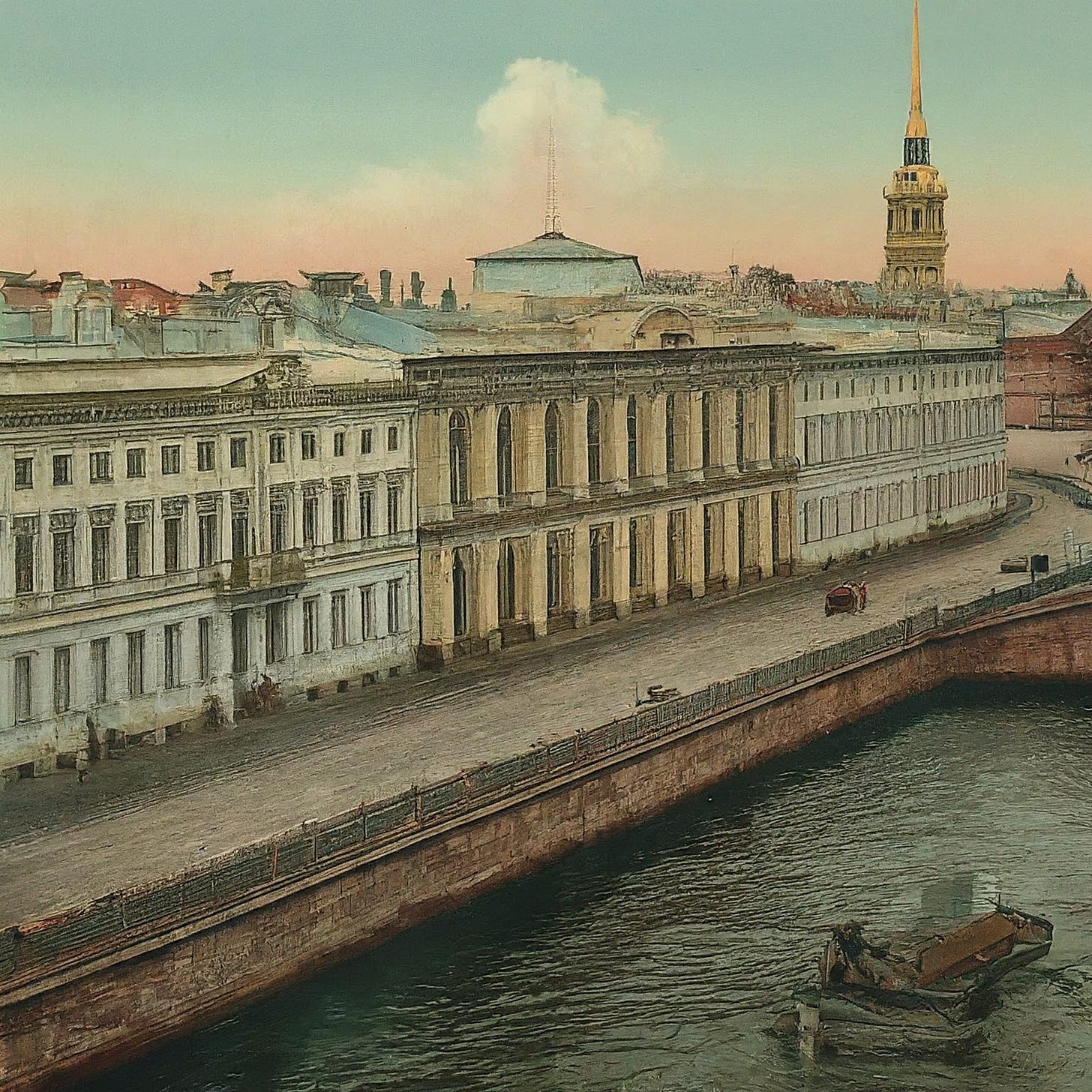Tsar Nicholas II's Decision to Ignore Rasputin's Advice
A recommendation to avoid war went unheeded forever changing the course of Russia.
In the labyrinth of Russian history, the relationship between power, prophecy, and fate is deeply interwoven. During the Romanov era, a significant and fateful choice by a man in power to ignore the advice of an enigmatic mystic brought to pass a tragic prophecy. Of course, we're talking about Tsar Nicholas II and his decision to enter World War I.
The Ominous Warning: Rasputin's Prophecy
Grigori Rasputin started his life as a Siberian peasant. He rose to extraordinary influence within the Russian court. Word of his legend began to grow in Siberia throughout the early 1900s. His ascent occurred despite living a life steeped in myth and controversy. His reputation as a mystic and a faith healer would bring him to St. Petersburg.
He would curry favor with Tsarina Alexandra by easing the pain of her son- at least in her eyes. To the royal family, particularly Tsarina Alexandra, Rasputin was more than just a spiritual advisor. He was a savior. He was a man whose prayers could miraculously heal the hemophiliac Tsarevich Alexei. However, the broader Russian society, particularly the political elite, did not share this sentiment. To them, Rasputin was a symbol of corruption and decay within the autocracy.
Meanwhile, across Europe, tensions had escalated. The drums of war were starting to pound. Back in Russia, Rasputin became increasingly vocal in his opposition to Russian involvement in the impending conflict. He urged the Tsar to stay out of the conflict. According to accounts from the time, Rasputin predicted that if Russia entered the war, it would bring about immense suffering. Included in that prediction was the downfall of the Romanov dynasty. Rasputin’s prophecy was stark. He foresaw that war would lead to revolution, and revolution would spell the end of the centuries-old Romanov reign.
The issue with Rasputin's insights were quite simple. His opposition to the war was not based on strategic or military insight. It was rooted in his mystical beliefs. He claimed to have visions of the empire’s destruction. His warnings to the Tsar were laced with ominous predictions of bloodshed and catastrophe. Hardly elements that passed the credibility test.
Yet, despite his lack of formal education or political acumen, Rasputin’s influence over the royal family did not fall on deaf ears. They were taken seriously by those closest to the throne. But they weren’t influential enough.
The Path to War
Despite Rasputin’s dire warnings, Tsar Nicholas II ultimately chose to disregard the mystic’s advice. The decision to enter World War I was influenced by a complex array of factors. Russia had obligations to allies (the Triple Entente with France and Britain). The Tsar desired to assert Russia’s status as a great power. And finally, he had the belief that the war could serve as a unifying force for the nation. His nation. His nation which had been rocked by internal unrest and revolution less than a decade earlier.
Some historians posit the Tsar’s decision to enter the war was also an attempt to shore up the legitimacy of the Romanov dynasty. Revolutionary sentiment was still in the are. Leading the nation into a patriotic struggle, Nicholas II hoped to rally Russians around the monarchy. However, in making this choice, the Tsar underestimated both the resilience of his empire and the accuracy of Rasputin’s foreboding predictions.
The Unraveling of the Romanov Dynasty
World War I proved to be disastrous for Russia. The nation was woefully unprepared. The Russian army suffered catastrophic losses on the Eastern Front. When the war was over, nearly two million Russian soldiers had been killed. The war also placed immense strain on the Russian economy, leading to food shortages, inflation, and widespread suffering among the civilian population.
As the war dragged on, the initial wave of patriotic fervor quickly gave way to disillusionment and despair. The hardships of war exacerbated the already-existing social and political tensions. Discontent among the peasantry, workers, and soldiers grew. Strikes, protests, and mutinies erupted. The crises became too many to stabilize, further eroding Tsarist legitimacy.
Rasputin’s prophecy of revolution and the downfall of the Romanovs began to take on an air of inevitability. By 1917, the situation in Russia had become untenable. The February Revolution, sparked by a combination of food riots and political protests, led to the abdication of Tsar Nicholas II. This ended over three centuries of Romanov rule. The Tsar and his family were placed under house arrest. Meanwhile, the Provisional Government that replaced the monarchy struggled to maintain control.
In October 1917, the Bolsheviks, led by Vladimir Lenin, seized power in a coup d’état, marking the beginning of Soviet rule. The Romanovs, now powerless and confined to their quarter, faced an uncertain future. Rasputin’s prophecy reached its grim conclusion in July 1918, when the Tsar, Tsarina, and their children were executed by Bolshevik forces in Yekaterinburg. Rasputin’s prophecy had come true in the most tragic of ways. The Tsar's decision, viewed through the lens of hindsight, appears as a tragic turning point, not only for the Romanov dynasty but also for the Russian Empire.
History for the Hurried:
July 12, 1943: During World War II, in the Battle of Kursk, the largest tank battle in history took place outside the small village of Prohorovka, Russia. About nine hundred Russian tanks attacked an equal number of German tanks fighting at close range.
July 14, 1789: The fall of the Bastille occurred at the beginning of the French Revolution. Rush wrote a really great song about the event.


